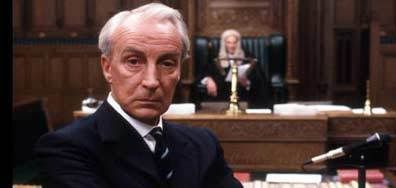Far right wins seats in German state assembly
By Erik Kirschbaum
SCHWERIN, Germany (Reuters) - A far-right party compared to the early Nazis by the German government has won seats in a regional parliament, helped by a weak economy and anger with Chancellor Angela Merkel's ruling coalition.
Preliminary results showed the National Democratic Party (NPD), which advocates closing German borders to immigrants, won 7.2 percent of the vote in Mecklenburg-Vorpommern, a northeastern state on the Baltic Sea which borders Poland.
If confirmed that result would allow the NPD to enter the regional assembly, making Mecklenburg-Vorpommern the third state in the ex-communist east with far-right representation.
The result alarmed mainstream politicians and Jewish groups, who called on the federal government to renew its bid to ban the party after a previous attempt failed.
"The government must look for ways to impose a ban," Dieter Graumann, vice president of the Central Council for Jews in Germany, told Reuters.
Results in the state showed the centre-left Social Democrats (SPD) marginally ahead of Merkel's conservative Christian Democrats (CDU) and on track to continue their ruling coalition with the reformed communist Party of Democratic Socialism (PDS).
Election data showed 15 pct of 18 to 24 year olds voted NPD in Mecklenburg.
In a federal election exactly one year ago, Merkel won a disappointingly narrow victory over her predecessor Gerhard Schroeder, forcing her into a coalition with his SPD party.
Many Germans had hoped her "grand coalition", with its big majorities in both houses of parliament, would be able to push through crucial reforms.
But it has been plagued by infighting and struggled to deliver promised changes to the healthcare system. Experts say this has helped boost smaller parties like the NPD.
BERLIN MAYOR RETURNED
In a separate election in the German capital and city-state of Berlin on Sunday, the SPD under popular Mayor Klaus Wowereit remained the largest party as expected.
The result should allow Wowereit -- who won admirers in 2001 by outing himself with the words "I'm gay and that's a good thing" -- to continue to rule alongside the PDS or perhaps opt for a new coalition with the environmentalist Greens.
His victory came despite what critics say was a failure during his first term to tackle Berlin's crippling 60 billion euro debt-load and jobless rate of over 17 percent.
In Mecklenburg-Vorpommern, the state where Merkel has her local constituency and where she hosted U.S. President George W. Bush for a barbecue in July, the economy is even weaker.
Nearly one in five is without work and the jobless rate hovers above 30 percent in some areas. Like other states in the former communist east, it has seen many leave in search of jobs.
Those conditions have provided fertile ground for the NPD, which was accused of using thugs to bully rival parties during the campaign. Its leaders have played down Nazi responsibility for World War Two and questioned the extent of the Holocaust.
Several hundred protesters gathered outside the parliament building in the Mecklenburg state capital Schwerin, waving "Nazis Out" posters.
After Sunday, the NPD will hold seats in the state assemblies of Mecklenburg and Saxony. Another far-right party, the German People's Union (DVU), holds seats in Brandenburg.
The federal government has compared the party to the Nazis of the 1920s and tried to ban them in 2003 in the country's highest court. It failed after members of the party who testified turned out to be informants planted by the police.
No far-right parties have made an impact at the national level. The NPD won just 1.6 percent of the vote in last year's federal vote, far below what parties like France's National Front have registered.



 Reply With Quote
Reply With Quote















Bookmarks